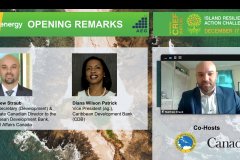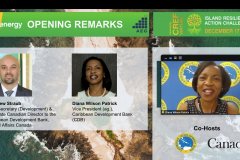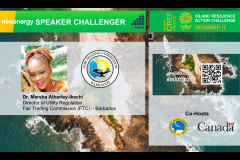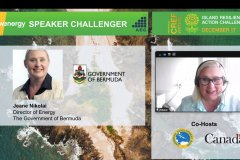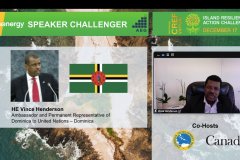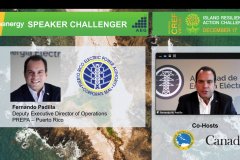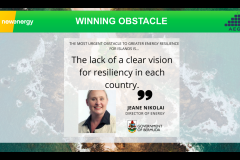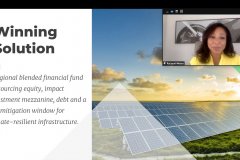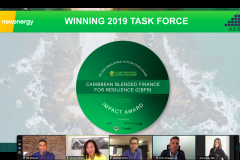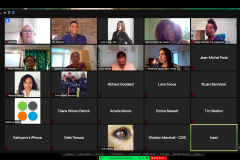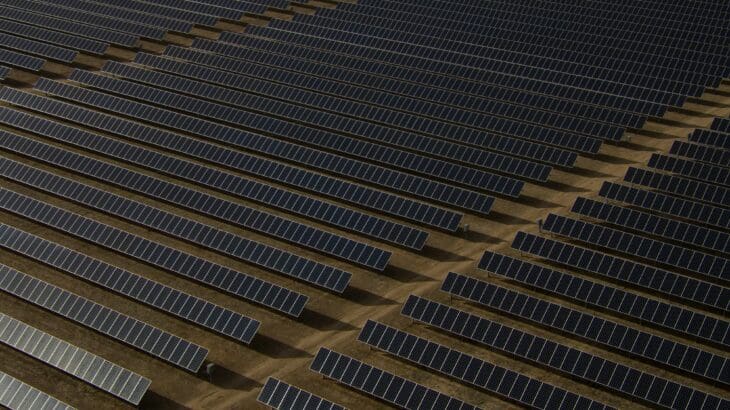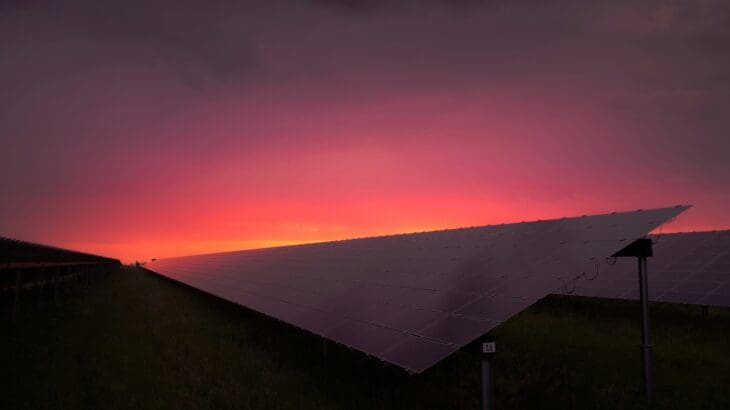By: Kimberly Lewis, Lead Fellow, Advanced Energy Group
At the tail end of a notably unprecedented and challenging year, Advanced Energy Group (AEG) and New Energy Events (NEE) virtually hosted the Island Resilience Challenge (IRAC). IRAC is a one-of-a-kind annual workshop focused on identifying key barriers to grid resiliency in the Caribbean and determining actionable solutions. The event brought together stakeholders who represent key facets of the energy industry in the Region including utilities, regulators, policy makers, financers, developers, and manufacturers. Hailing from Trinidad and Tobago, I see first-hand that much work remains to be done in advancing a clean energy transition and forums such as IRAC demonstrate the vital need for an interface between policies in the economic, social and environmental spheres together with national action supported by the region at large.
During the event, regional stakeholders had the chance to exchange ideas across sectors and borders, firstly identifying the key obstacles and potential solutions. The outcome was a 12 Month Task Force, where these leaders will consolidate their commitments and have an opportunity to act on resiliency. In his opening remarks, Dr. Cletus Bertin, Executive Director of CARILEC set the stage for the discussion, emphasizing the need for multi sectoral consensus and collaboration. “We are looking for innovation, we are looking for creativity and we are looking for urgency,” declared Dr. Bertin.
An impressive panel of speakers navigated industry obstacles and their impact on delivering a clean and resilient grid. After a vote, the room of 65 leaders deemed the most urgent hurdles to greater energy resilience for islands is the lack of a clear vision for resiliency in each community, presented by Jeane Nikolai, Director of Energy for the Government of Bermuda. This drew reference to another problem statement, laid forth by Dr.Vince Henderson, Ambassador to the United States for Dominica, which described lack of institutional capacity to create and execute plans and programs.
After suggesting solutions in teams, followed by another vote, the winning 12month solution is to develop a regional resilience scorecard and get one Caribbean country to use it. Interestingly, several groups presented solutions that overlapped including developing metrics to measure resilience, creating a resiliency plan for the region, and getting buy-in from key stakeholders. Over 25 attendees decided to join the IRAC 20 Task Force to bring the resilience scorecard to life within 12 months.
During the event, the winners of the IRAC 2019 shared their success in achieving their 12-month objective. Led by Racquel Moses, CEO of Caribbean Climate-Smart Accelerator, the IRAC 19 Task Force is developing a blended Financial Fund for Caribbean Renewable Energy and Resilience with support from collaborators across the region and beyond, including CARICOM and the Government of Canada. Twenty-seven clean energy projects in the region were short-listed as candidates for financing once the fund is established. The success of this Task Force is a concrete example of how the IRAC can be leveraged to deliver outcomes for regional impact.
The room also discussed the COVID-19 pandemic as a reminder of the Caribbean’s vulnerability to external shocks and that a lack of resilience will be to its detriment. Small Island Developing States (SIDS) have always been inherently susceptible to external economic and financial shocks due to a narrow resource base, high reliance on imports and high debt burdens which challenge economic growth prospects. In addition to the region also being disproportionately affected by climate change, the novel Coronavirus is an unprecedented battle the region must now fight with growing devastating health, social and economic impacts.
Economies of Caribbean nations are typically reliant on service industries like tourism. As the pandemic is having a crippling effect on global migration and tourism, annual revenue has been compromised. The United Nations World Tourism Organization (UNWTO) estimates that COVID-19 will result in a contraction of the tourism sector by 20% to 30% in 2020.
In the face of such instability and uncertainty, it is critical that we reshape our decision-making process. The global pandemic and the associated economic impacts must accelerate corporate, investor, and government climate action towards the energy transition.
Diana Wilson Patrick, Vice President at the Caribbean Development Bank (CDB) highlighted immediate needs of the region including, “weaning countries from over dependence on imported fuel through greater use of renewables and improving infrastructure.”
At the end of the event, the tone was very optimistic and there was clear consensus that, as a region plagued by health and climate risks, the Caribbean must promote resiliency as a tool to achieve economic stability and social equity. In my opinion, IRAC has demonstrated its positive influence and its further potential can only be realised if we follow through with unified action centered around collaboration. In a post-event discussion, Laura Ferguson, of DIT Caribbean, closed the show with a fitting message to the group, “While every country needs to have its own vision for resiliency, we all learn from each other – the importance of communication and collaboration across the Caribbean cannot be underestimated – let’s learn from each other, not reinvent the wheel…”
The Island Resilience Challenge (IRAC) was full of inspiring conversations. Building on its success, together we can implement effective solutions to mitigate climate change and drive economic growth in one of the world’s most vulnerable regions. Thank you to all the speakers, attendees, and sponsors for such an impactful event!


